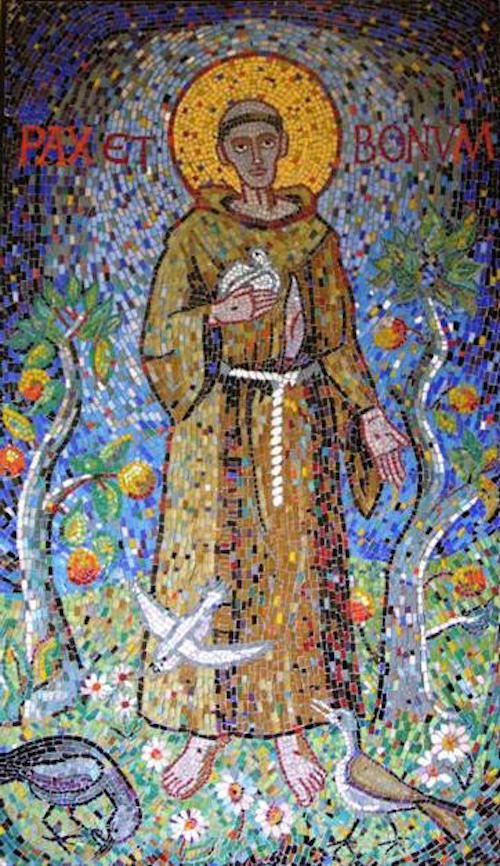

We are religious women and men living Franciscan life, ministering in our community, honoring the culture and spirituality of Hawai'i, and providing charitable goods and services to neighbors in need. (Please learn more about our charitable work under the heading "What We Do") The vowed religious who live at Na Pua Li'i Hermitage are known as Conventual Tertiaries sharing common (Apostolic) life and serving God and each other under promises of poverty, chastity (abstinence), and obedience.
We invite others who feel drawn to Franciscan spirituality and life to consider joining our community as Tertiaries. The Tertiaries of Na Pua Li'i might be married or single, clerical or lay, living in Hawai'i or elsewhere in the world. Whichever level of vows they have chosen, all strive to root themselves in the Franciscan ideals of humility, love, & joy and to live daily lives of prayer, study, and manual labor. Seeking to simplify their lives, the Tertiaries strive to live simply that others might simply live, strive to follow our Lord's universal call to innocence and purity, and join with the rest of the Community in being faithful to our prayers, to God, and to each other. Our religious order is called Na Pua Li'i Hermitage, Third Order of St. Francis (though some of our members live under first-order vows, following the Evangelical Counsels of chastity, poverty, and obedience).
St. Gregory the Great enjoined the missionaries he sent westward from Rome to respect "what the Holy Spirit has done"
and
to do no violence to what the human heart has learned from God.
Understanding our Franciscan life in terms of the spirituality that preceded us here by eight centuries,
we seek to practice
aloha,
kokua,
malama honua,
and
pono,
virtues that speak to the hearts of people living here in Hawai'i.
(Please see our link
"What is Franciscan?")
The background story of the Conventual Tertiaries is Haiti,
where they shared common life in a Franciscan religious house
collectively
for more than forty years,
praying the Hours together,
celebrating the Holy Mass together,
ministering together,
and
sharing community.
During that time no member of the community received compensation
except for shelter, food, and necessary transportation costs.
The Tertiaries of Na Pua Li'i continue today to offer their services gratis
to those in need
asking nothing in return.
May we conclude with a reflection? The Vatican II Fathers were confronted with a dilemma. They wanted to reach out to the entire world inviting every man, woman, and child into real fellowship and communion, but they were confronted with two, related dilemmas. The first was Roman Catholic Canon Law, which forbade all "non-members" from approaching the communion rail to share the Bread of Heaven entering into real communion. The second problem was the ancient (and by Roman Catholic reckoning, infallible) teaching, Non salus est extra Ecclesiam, or "No salvation outside the Church." Their solution was a clever one. In both the Dogmatic Constitution and the Pastoral Constitution of the Catholic Church, they suggest that no one is outside the Church by virtue of family resemblance, for everyone is made in the image of God. Sadly, however, the Roman Church continues to withhold the sacraments from people and families who do not conform to the rules set out by Roman Catholic Canon Law.
Our religious order, Na Pua Li'i Hermitage, and its church, the Church of St. Mary and the Angels, together form a tax-exempt organization and is approved by the State of Hawai'i. Our public ministry, Franciscan Hermitage Ministries, is recognized by the State of Hawai'i as a non-profit, public benefit corporation. We are governed by the restrictions and requirements specified in Section 501(c)(3) of the U.S. Internal Revenue Code and bound by the requirements set out by the State of Hawai'i for charities.
As tax-exempt status is chiefly about no individual profiting from our ministry, we emphasize that
|
No one in our organization receives a salary or compensation of any kind.
Neither does any member of our Board, nor anyone who helps us or serves us, receive compensation of any kind. |